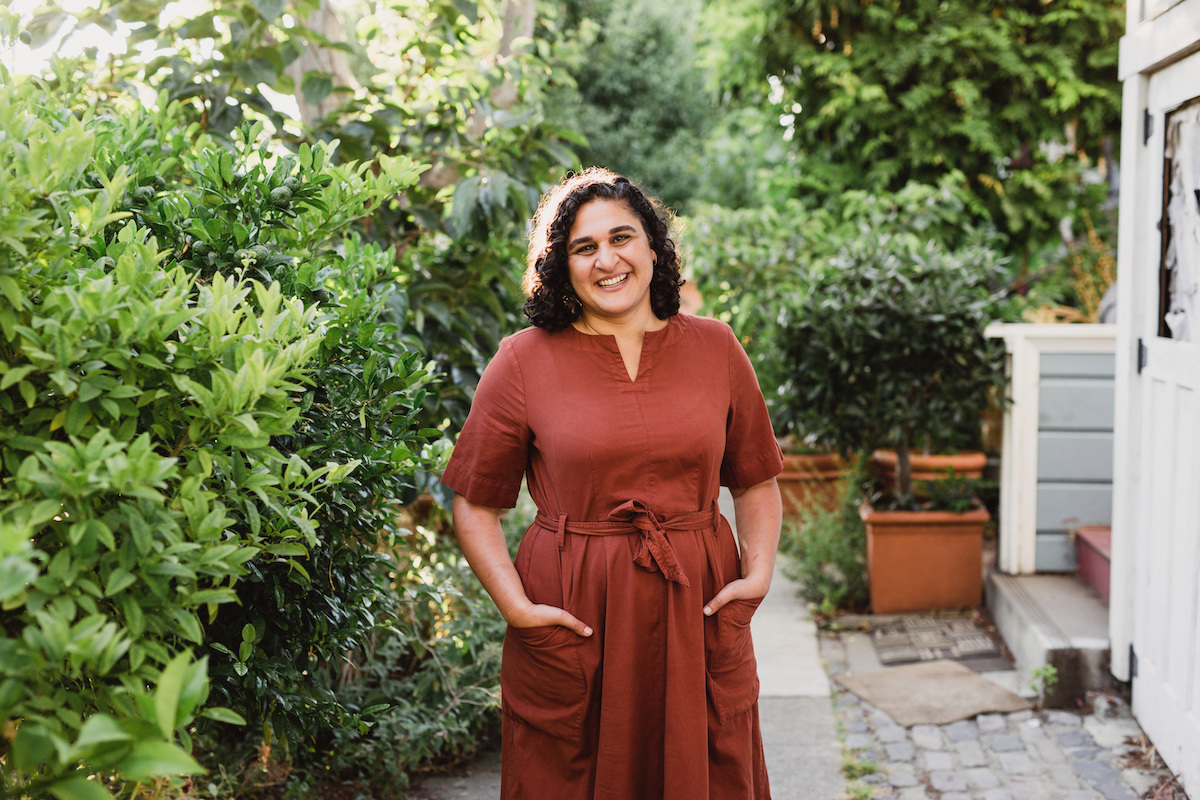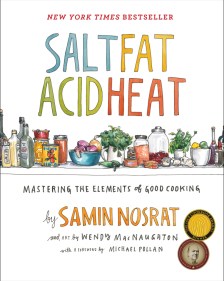Samin Nosrat on Fame, Food, and Writing
UCSB Arts & Lectures Hosts the Author and Cooking Show Star on February 28

The James Beard Award–winning author and Netflix star Samin Nosrat needs no introduction. To call her thought- and taste-provoking Salt Fat Acid Heat a cookbook is like saying Hamlet is a ghost story — except Shakespeare didn’t have such nifty infographics.
It’s our great fortune that she will be part of an UCSB Arts & Lectures virtual talk on Sunday, February 28, at 11 a.m. Moderated by Santa Barbara’s own restaurateur Sherry Villanueva, owner of The Lark, La Paloma, Loquita, and other hotspots, the chat also features Israeli-English author/chef Yotam Ottolenghi — remember when his book Plenty would be set dressing on television shows as a symbol that characters had hip taste?
“I have had the great privilege of learning from Yotam for several years now,” Nosrat said during a recent telephone call. “He’s introduced so many cooks to the part of the world we both come from. The way he uses ingredients is somewhat similar, but he says, ‘You’re really close, but you missed sweet.’”
Get the top stories in your inbox by signing up for our daily newsletter, Indy Today.

Ottolenghi, who lives with his family and runs several restaurants in London, has had a very different pandemic experience than Nosrat. She lives alone, and even fessed up that many of her meals during this time have been peanut butter toast or fried eggs. Nosrat suggests viewers enjoy their talk as a peek into two friends having a conversation. She elaborated, “There’s so much stress from pandemic life, so it will be nice to have a little cozy bubble you can go to.”
Despite growing up in San Diego and living much of her life in the Bay Area (including now), Nosrat hasn’t spent time in Santa Barbara and is disappointed she won’t get to come in person as originally scheduled. So much for her planned pilgrimage to Julia Child’s favorite, La Super-Rica Taqueria.
But, of course, she’s most associated with Berkeley, thanks to a transformative meal at Chez Panisse. “What really moved me about Chez Panisse — I’m not sure any other restaurant would have done it for me — was that people were artists and cooks, professional musicians and bartenders. They had full lives and were good at everything they did,” she said, explaining why that dinner led her to apply as an intern. “These people were so capable and creative and could make something out of nothing. It was a portal to this other universe.”
That portal was especially welcome, for she feared a corporate future. “I had no idea what to do with my life,” she said. “I did have a dreadful understanding that I would have to get a job and get a wardrobe and go to an office. I felt completely unequipped to do that. What’s Ann Taylor? I still don’t know.”
Despite rising through the Chez Panisse ranks and then studying food in Italy even more seriously, her English-major roots beckoned. “I still wanted to write,” she admitted. “When I love something, I need to completely immerse myself.” She was accepted into the MFA poetry program at Sarah Lawrence, but when her preferred mentor Thomas Lux left the school, she deferred.

“I wasn’t willing to give all of me to cooking,” said Nosrat, who is now 41 years old and has seen so many chefs of her generation, particularly women, beat up by the restaurant industry. “Cooking chews you up and spits you out.” Luckily, she audited a class with Michael Pollan, got the food writing bug, and a scored gig on his doc Cooked, a precursor to her solo TV success.
Since the instant and seemingly easy 2017 success of Salt Fat Acid Heat, Nosrat has struggled more with the follow-up. “I’m very familiar with the narrative around the second-book problem,” she said. “I’m a 99 percent procrastinator.”
She’s letting this next book percolate. “I certainly used up a lot of my own personal stories in the first book, so I needed to listen,” she realized. “I needed to learn how people are eating so I can teach them how to cook. I had a plan of going out in the world and reporting, but then the pandemic happened. I started a podcast last year so people could bring their problems to me. How are people hitting walls? But COVID questions are different than regular questions.”
Progress is happening, though. “Last week, I only watched TV, but I figured out all the structural problems of my book,” she said about her let-it-rest process. “I’m not a normal person — people assume I’m testing a bunch of recipes. But instead I’m creating many, many puzzles for myself. I don’t know of any other way than to make things difficult for myself. Ottolenghi has his lab, and they work on recipes — I’d implode doing that. I need to move Post-It notes around and go for a hike. At least now I have the training of being through this pain once.”
Beyond the struggle to write, Nosrat still asserted that we need to “be as present with our senses as we can” in order to seriously enjoy our food. “The sensory experience of tasting can seem too monkish,” she admitted, and then her leavening sense of humor rushed in. “But don’t forget I’ve been known to eat a bag of gummy bears in one sitting, too.”




You must be logged in to post a comment.